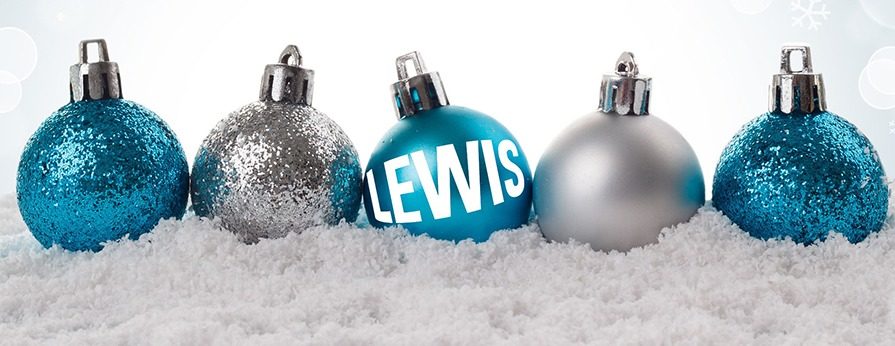Culture Guide: A British Christmas
Christmas is celebrated in many different countries all over the world. In each country, Christmas has its unique form. Even within the UK, the way Christmas is celebrated changes greatly from area to area. Individual families often have unique traditions, which are passed down from generation to generation.
In this post, I’ll give my experience of a British Christmas, all the way through from childhood to adulthood. It’ll include all the most important features; presents, food, films and fun.
The run-up to Christmas
The run-up to Christmas is an unusual time. As a kid, this period is nothing but exciting. There are films instead of lessons, Christmas parties and copious amounts of chocolate. These three elements are enough to keep even the grumpiest of children happy.
As an adult, however, the joy and festivities are accompanied by a large dose of stress as a result of exams and work deadlines. A hectic schedule of work parties and present buying makes the festive season fly by.
This situation creates a conflict between those who crack out the Christmas jumpers and decorations on the 1st of December and those who mutter under their breath about how Christmas seems to be coming earlier every year whilst covering their ears to block out the incessant Christmas music.
School Plays
In primary school, the run-up to Christmas always culminated with the end-of-year Christmas play. As a result of a fairly religious headmaster, our plays for the first 5 years of my primary school were always a nativity; complete with baby Jesus, a donkey and three wise men with tea towels on their heads.
A change of headmaster, however, led to some more inventive plays. My favourite memory of these were when my entire class had to be kazoo playing elves. My lowest moment was being ‘Chef Number 5’ with one line of dialogue. In secondary school, the plays became even more adventurous with versions of We Will Rock you and adaptions of classics such as Oliver Twist.
Christmas at work
At the Lewis School of English, the festive atmosphere emanates from just one source, Michelle, our Welfare and Administration Officer. Michelle has succeeded in wearing a different Christmas jumper and set of accessories pretty much every day since the 1st of December. She is also the reason for the Christmas tree, the decorations and the fact that everyone in the office is currently sitting at their desks with reindeer horns on their heads.
Michelle is also the driving force for the workplace Secret Santa. This is where everyone must draw a name from a hat and buy a present for that person without spending over a certain amount of money; for us this year that amount was £5.
Another element of the work Christmas celebrations is the Christmas party or meal. Traditionally, these are paid for by the boss as a way to thank the employees for their hard work during the year. As an experience, Christmas work parties can range from a fantastic opportunity to let your hair down, all the way through to an awkward nightmare, in which workplace dramas are combined in a toxic manner with alcohol.
Pantomimes
“Oh no he didn’t, oh yes he did”
Pantomimes are a wonderfully silly British institution. The pantomime season runs from November to early February. A pantomime is a form of theatre, which is usually based on a traditional children’s story such as Beauty and the Beast or Robin Hood.
There are certain elements which make a pantomime a pantomime. These include song, dance, audience participation, slapstick comedy, lewd jokes and cross-dressing. This year’s pantomime in Southampton is Peter Pan which is playing at the Mayflower Theatre.
Christmas Day
It doesn’t matter what has changed; Christmas Day is still as magical to me now as it was when I was a child. It’s a day for laughter, family, fun, silly games, Christmas television and opening presents.
Church
Christmas is, at its heart, a Christian festival. Although there are far less practising Christians in Britain than in the past, Christmas is still a time in which many people choose to go to church. There is a range of church services dedicated to Christmas during the run-up to and on Christmas day itself. Arguably the most important of these events is Midnight Mass, which starts in the evening on the day before Christmas and ends at midnight.
Food
Food is universally important on Christmas Day. However, like with other elements of the holiday, the food varies greatly from family to family. In our house, the day starts with a full British Breakfast. This is accompanied by Bucks Fizz, which is a mix of orange juice and champagne. A combination of chocolate, satsumas and nuts keep us sustained until the main food event, the Christmas dinner.
Christmas dinner includes turkey, roast potatoes, stuffing, carrots, brussel sprouts and gravy. Once the table is laid, it’s traditional to pull a Christmas cracker with the person sitting next to you. The crackers, which make a popping noise when pulled, contain a small toy, a terrible joke and a paper hat. The hat must be worn for the rest of the meal.
Normally everyone is too full after dinner to eat dessert straight away. We, therefore, wait for at least 30 minutes before making a start on the desserts. The first of these is the Christmas cake which is a stodgy fruit cake, covered with a layer of marzipan and a layer of icing. The top is decorated by Christmas figures and icing.
The second dessert is the Christmas pudding, which is also a type of fruit cake and is even stodgier than the first. The fun of Christmas pudding is in the serving as it is soaked in alcohol and set on fire before eating.
Christmas Entertainment
For me, the most important aspect of Christmas entertainment is the television. The most popular British television shows from the year make special Christmas episodes, which are usually slightly cheesier and fluffier than the normal versions. Favourites of the British population include the Great British Bake Off, Doctor Who and Call the Midwife.
There are also certain films that British people watch again and again every year. These films can always be relied upon to fill you with happy, festive emotions. My favourites of the Christmas films are The Muppets Christmas Carol and Love Actually.
Every year at 3 p.m., millions of people crowd around their T.V’s to watch the queen’s speech. It is broadcast in Britain and across the commonwealth and for many people is an integral part of Christmas day. In the speech, the queen reflects on the year and on what Christmas means to her.
Presents
Gift-giving has always been a part of Christmas. Traditionally, we give gifts to remember the presents that the three wise men gave to Jesus Christ, the son of God in the nativity. However, in this modern commercialised world, present giving has become a principal element of Christmas day.
The first presents to be opened on Christmas day are, for most people, stocking presents. Stockings are large socks or sock shaped bags which are traditionally hung by the fire or on the end of beds. The stockings are filled with small toys, sweets and other gifts.
The big presents are kept under the Christmas tree. As the story goes, Father Christmas climbs down the chimney in the middle of the night and leaves the presents under the tree. On Christmas Eve, young children often leave out a mince pie and a drink for Father Christmas, as well as a carrot for the reindeers that pull Father Christmas’ sleigh.
In my family, we skip the stocking presents and instead have Christmas tree presents. Like stocking presents, Christmas tree presents are small gifts but we open them on the evening of Christmas day. The gifts are hidden on the Christmas tree and must be found before they can be opened. As children, these provided a little burst of excitement as Christmas day drew to an end.
The Aftermath
The day after Christmas is called Boxing Day. Like Christmas day, this is also a public holiday. On this day, my family usually meets up with friends and go for a short walk in the morning, bringing mince pies and mulled wine along with us. The afternoon and evening are usually spent playing games, watching television or generally relaxing.
There is a full week between Christmas Day and New Year’s Eve on the 31st of December. Many people view this week as an extension of Christmas and continue to eat, drink and relax. Some people use the week to visit their extended family.
How about you? Do you celebrate Christmas in your country? If so, how do you celebrate? What are your favourite parts of Christmas?
Quiz
[wp_quiz id=”13471″]











Leave a Reply